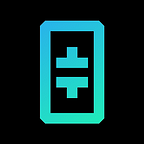EdgeCloud: Jupyter Notebook Support and Implications for AI development
The concept of technical workbooks has been around for decades dating back to Wolfram Mathematica and Maple in the 1980s, its main goal was to create human-readable programs by combining code snippets with explanatory comments. Today, Jupyter Notebooks is the most popular data science and AI integrated development environment used by over 80% of data scientists and AI engineers worldwide, according to the Kaggle Survey in 2022. The Jupyter extension for Visual Studio Code (VS Code) has been downloaded over 40 million times, making it the second-most popular extension in the VS Code Marketplace.
A Jupyter Notebook is an open-source web application that enables AI developers to create and share documents containing live code, equations, visualizations, and narrative text. Originally developed for data analysis and machine learning tasks, it supports over 40 programming languages, including Python, R, Julia and many more.
The Theta engineering team believes that by natively integrating Jupyter Notebooks in the EdgeCloud platform will play a crucial role in AI development and drive a number of benefits:
- Accelerating Prototyping and Experimentation — Jupyter Notebooks allow developers to quickly prototype and experiment with different algorithms and models. The immediate feedback loop enables rapid iteration, which is essential in AI development.
- Facilitating Data Exploration and Visualization — data exploration is a critical step in the AI development pipeline. Jupyter Notebooks provide tools for visualizing data, which helps in understanding data distributions, identifying patterns, and uncovering insights.
- Enhancing Documentation and Knowledge Sharing — combining code with markdown text and visualizations helps in creating detailed documentation. This is particularly useful for knowledge sharing within teams and for onboarding new members.
- Enabling Collaborative Development — Jupyter Notebooks support collaborative development by allowing multiple users to work on the same document. This is facilitated by platforms like JupyterHub and JupyterLab, which provide multi-user environments.
In the fall of 2023, Jupyter AI was launched integrating popular large language models into Jupyter Notebooks, which let developers interact using natural language prompts, explain and generate code, fix errors and summarize content. In short, Jupyter Notebooks have become a cornerstone of data science and AI workflows, enabling rapid experimentation, collaboration, and democratization of data insights. Their adoption across various industries underscores their significance in enhancing productivity, collaboration, and knowledge sharing.
As the field of AI continues to evolve, the Theta team believes that Jupyter Notebooks will continue to be at the forefront of AI research and application, empowering developers and researchers to push the boundaries of what is possible with artificial intelligence. Get started today by trying the EdgeCloud Jupyter Notebook integration here.
